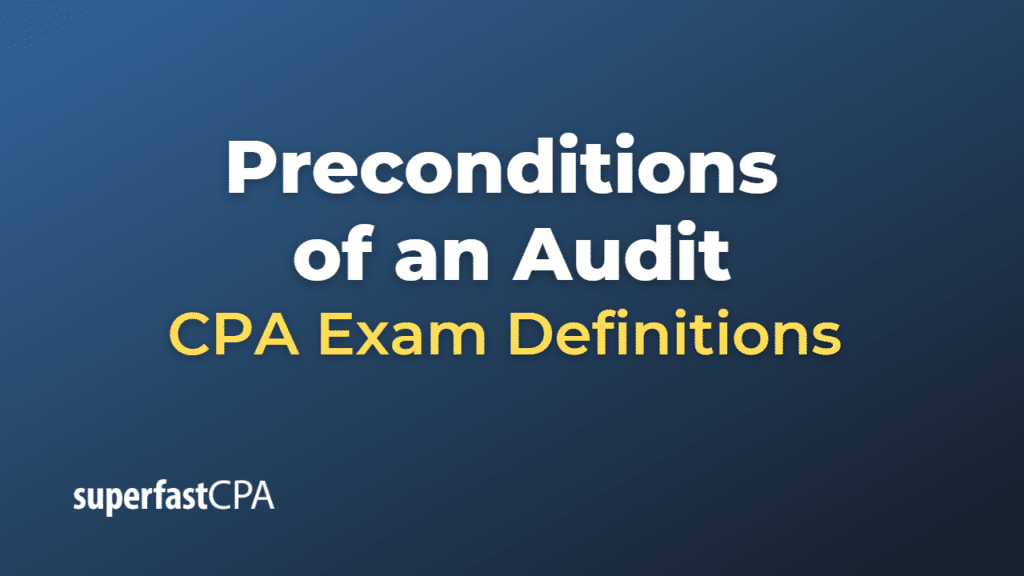Preconditions of an Audit
Before accepting an audit engagement, auditors must consider several preconditions to ensure that they can perform the audit effectively and that the engagement is appropriate. The main preconditions for accepting an audit engagement are:
- The appropriate financial reporting framework: The client should apply a suitable financial reporting framework (e.g., U.S. GAAP, IFRS) in the preparation of its financial statements. The auditor should assess whether the chosen framework is acceptable for the intended users of the financial statements, considering the nature of the client’s business, regulatory requirements, and other relevant factors.
- Management’s responsibility: The client’s management must acknowledge and accept their responsibility for the preparation and fair presentation of the financial statements, as well as for implementing and maintaining an adequate system of internal control over financial reporting. This includes the responsibility for preventing and detecting fraud and ensuring the completeness, accuracy, and timeliness of the financial information.
- Agreement on the terms of the engagement: The auditor and the client should agree on the terms of the audit engagement, which are typically documented in an engagement letter. This agreement should outline the scope of the audit, the objectives and limitations of the audit, the responsibilities of both parties, and the expected deliverables, such as the audit report.
- Auditor’s independence and ethical requirements: The auditor should evaluate their independence and ability to comply with the relevant ethical requirements, including the AICPA Code of Professional Conduct or the International Ethics Standards Board for Accountants (IESBA) Code of Ethics. This involves assessing any potential threats to independence, such as financial or personal relationships, and applying appropriate safeguards to eliminate or mitigate those threats.
- Competence and resources: The auditor should ensure that they have the necessary competence, skills, and resources to perform the audit effectively. This includes having sufficient knowledge of the client’s industry, the applicable financial reporting framework, and the relevant auditing standards, as well as having access to an adequate team of qualified professionals to conduct the audit.
- Client’s integrity: The auditor should assess the integrity of the client’s management and those charged with governance. This involves evaluating the client’s reputation, ethical values, and history of compliance with laws and regulations. If the auditor has concerns about the client’s integrity, they may decide not to accept the engagement or to communicate these concerns with those charged with governance before proceeding.
If these preconditions are not met or if the auditor has concerns about their ability to perform the audit effectively, they may decline the engagement or discuss the issues with the client and those charged with governance to determine whether the preconditions can be satisfied before proceeding with the audit.













